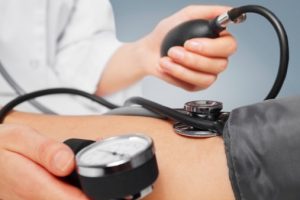
First author Dr. Harneet Walia said, “Our findings suggest that severe obstructive sleep apnea contributes to poor blood pressure control despite aggressive medication use. This is an important finding from a clinical perspective as poor blood pressure control in patients taking multiple antihypertensive medications makes them particularly vulnerable to increased cardiovascular risk.”
President of the American Academy of Sleep Medicine Dr. Timothy Morgenthaler added, “High blood pressure that is resistant to treatment with medications is a strong warning sign for the presence of obstructive sleep apnea, a chronic disease that increases the risk for heart disease and stroke. Over one-third of patients with hypertension and nearly eight out of 10 patients with treatment-resistant hypertension have obstructive sleep apnea. People who have high blood pressure should talk to a doctor about their risk for sleep apnea.”
The Centers for Disease Control and Prevention (CDC) estimated that 36 million Americans have hypertension that is not well-managed, which puts them at risk for cardiovascular-related problems, including heart attack. The American Academy of Sleep Medicine reports that 80 percent of drug-resistant hypertension patients also have sleep apnea.
Dr. Walia added, “Even under the close care of a cardiologist following national guidelines for treatment of cardiovascular risk and comprehensive medication regimens, severe levels of obstructive sleep apnea versus a moderate level of OSA appear to be contributing to suboptimal blood pressure control.”
Sleep apnea treatment may lower hard-to-control blood pressure
Research has found that patients with hard-to-control blood pressure may benefit from treating obstructive sleep apnea. Standard treatment for sleep apnea involves continuous positive airway pressure (CPAP) device, which is a facial mask worn at night to ensure there is no stoppage of breathing. Much research has found a link between obstructive sleep apnea and hypertension.
The study had participants use a CPAP device for 12 weeks where researchers saw reductions in diastolic blood pressure and improvement in overall nighttime blood pressure.
Lead researcher Dr. Miguel-Angel Martinez-Garcia said, “The prevalence of sleep apnea in patients with resistant [high blood pressure] is very high. This [sleep apnea] treatment increases the probability of recovering the normal nocturnal blood pressure pattern.”
The researchers suggest that patients with drug-resistant hypertension should undergo sleep tests to rule out obstructive sleep apnea as a potential cause.
Dr. Gregg Fonarow, a spokesman for the American Heart Association, added, “Close to three out of four patients with resistant [high blood pressure] have been found to have obstructive sleep apnea, and this sleep apnea may contribute to the difficulty to control the blood pressure in these patients.”
Sleep apnea remedies and prevention tips
For example, sleep apnea is more common among individuals who are overweight or obese. Maintaining a healthy weight can help treat sleep apnea. Additionally, regular exercise can help aid in the symptoms of sleep apnea.
Reducing your alcohol intake or the use of sleep aids can also improve sleep apnea, as they both work as sedatives and tranquilizers, allowing the muscles in the back of the throat to relax, which can contribute to sleep apnea.
Another trick is to avoid sleeping on your back and opt for your side instead.
Lastly, do not smoke, and try to keep your nasal passages open throughout the night. Smoking has been found to worsen sleep apnea, and a saline nasal spray can help open up nasal passages.